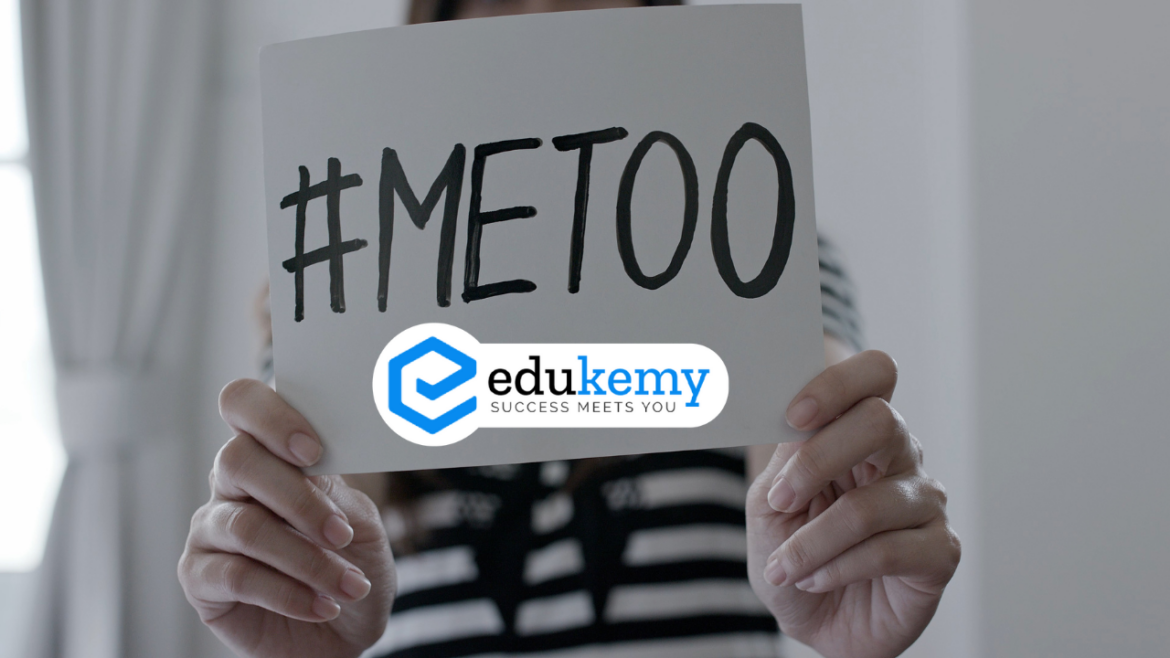
The #MeToo movement has catalyzed a seismic cultural shift, thrusting conversations surrounding sexual harassment, assault, and gender inequality into the forefront of public discourse. Originating as a social media campaign in 2017, #MeToo swiftly evolved into a global phenomenon, empowering individuals from all walks of life to share their stories of mistreatment and demand accountability from perpetrators. With its roots deeply embedded in the struggle for gender justice, the movement has sparked widespread awareness, advocacy, and legislative action, challenging societal norms and institutionalized power dynamics. As #MeToo continues to reverberate across industries and communities worldwide, its impact resonates as a potent force for change, reshaping attitudes, policies, and cultural norms surrounding issues of consent, respect, and equality.
Currently, India is undergoing its second wave of the #MeToo movement, witnessing women, including public figures, exposing instances of sexual harassment involving influential men.
Contents
Significance of the Movement:
- The recent surge in the #MeToo campaign has brought forth numerous personal stories of anger and guilt that remained concealed for years.
- A crucial aspect of the movement lies in raising awareness about sexual violence and assault.
- The movement’s emergence underscores a perceived failure in legal and systemic mechanisms addressing sexual harassment.
- Women, who endured years of silence, are now finding the courage to utilize a “name and shame” mechanism.
- By facilitating victims to collectively name their harassers, the campaign compels authorities to address the issue seriously and initiate redress processes.
- The movement seeks to transform power dynamics by exposing influential men who abuse their positions to sexually harass women.
- At the fifth Global Symposium on Health Systems Research, the #MeToo movement resonated, emphasizing its relevance to Sustainable Development Goal 5, which focuses on gender equality and combating sexist behavior.
Challenges:
- The movement has highlighted that even privileged women are not immune to cultures of sexual harassment and exploitation.
- The delay in women from journalism/cinema coming forward may pose challenges for those in more hierarchical environments, such as the corporate sector.
- Concerns arise about potential collateral damage, with the possibility of individuals facing false accusations.
- Workplace sexual harassment, even through verbal means, has been linked to health issues like high blood pressure, poor-quality sleep, anxiety, and symptoms of depression.
- The need for greater gender diversity in the workplace, an area where India lags behind.
Way Forward:
- Policymakers and civil society must scrutinize how the system fails women against powerful male counterparts.
- Offenders should experience a sense of fear, ensuring accountability for their actions.
- Promoting an attitudinal change, socialization process, and education to enhance male sensitivity in interactions with women.
- Prioritizing workplace audits alongside financial audits for companies.
- Strict adherence to the law mandating that investigations should be completed within 90 days.
- Conducting workshops and awareness programs against sexual harassment.
- Ensuring equal punishment for individuals, irrespective of gender, making false charges.
Frequently Asked Questions (FAQs)
Q: What is the #MeToo movement?
A: The #MeToo movement is a global social media campaign that emerged in 2017 to raise awareness about the prevalence of sexual harassment and assault. It encourages survivors to share their experiences, often using the hashtag #MeToo, to demonstrate the widespread nature of such misconduct.
Q: What are the goals of the #MeToo movement?
A: The primary goals of the #MeToo movement are to empower survivors to speak out about their experiences, to hold perpetrators accountable for their actions, to challenge societal norms that perpetuate harassment and assault, and to promote cultural change towards greater respect, equality, and safety for all individuals.
Q: Has the #MeToo movement led to any significant changes?
Yes, the #MeToo movement has sparked significant changes in various industries, including Hollywood, politics, media, and corporate workplaces. It has led to the exposure and downfall of numerous high-profile individuals accused of sexual misconduct, as well as the implementation of policies and initiatives aimed at preventing and addressing harassment and assault.
Q: Who can participate in the #MeToo movement?
Anyone who has experienced sexual harassment or assault, regardless of gender, age, race, or background, can participate in the #MeToo movement by sharing their story if they feel comfortable doing so. Additionally, allies and supporters can contribute by listening to survivors, advocating for change, and taking action to combat sexual misconduct in their communities.
In case you still have your doubts, contact us on 9811333901.
For UPSC Prelims Resources, Click here
For Daily Updates and Study Material:
Join our Telegram Channel – Edukemy for IAS
- 1. Learn through Videos – here
- 2. Be Exam Ready by Practicing Daily MCQs – here
- 3. Daily Newsletter – Get all your Current Affairs Covered – here
- 4. Mains Answer Writing Practice – here

